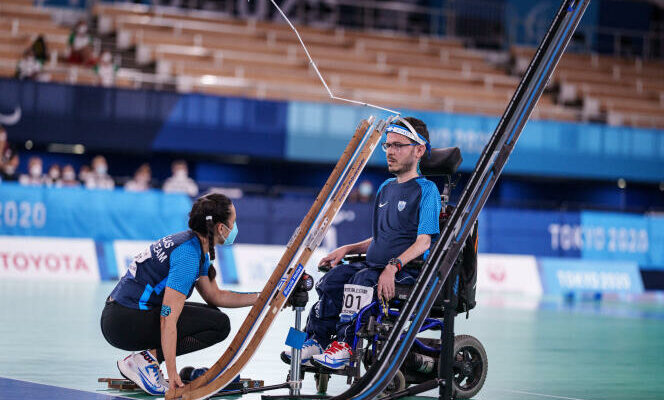When Sonia Heckel learned, a few months before the Tokyo Olympic Games in 2021, that the French boccia team would benefit from mental support, she was initially surprised. “It was presented to us as a new tool to improve performance, but we didn’t really know what it was, and I was reserved because I have difficulty trusting it”remembers the 34-year-old young woman, currently number 2 in the world in this strategic sport similar to pétanque, created specifically for people with disabilities.
A few months before the Paris 2024 Olympic and Paralympic Games, now convinced of the usefulness of this approach, Sonia Heckel wants to recruit a personal mental trainer, in addition to the team coach, Eve Beaulaigue. “With her, I worked a lot on my self-confidence, which was affected by my many health problemscontinues the boccia champion, who, like her twin sister, suffers from progressive limb-girdle muscular dystrophy, and who has been using a wheelchair since she was 12. “Eve also focused on communication with Florent Brachet, my sports assistant. In competition, we are together twenty-four hours a day, and things could get out of hand. »
“In disabled sports, mental support can require being creative to find the right ways to communicate. This is even more true in boccia, a discipline intended for people with the most severe disabilities. insists Eve Beaulaigue, who has been with the French team since 2019.
Boccia, but also rowing, athletics, swimming, or even cycling… In parasport, the mental preparation of high-level athletes is increasingly part of the practices, even if its development is slower than among able-bodied people, due to less financial resources.
“Mourning for his previous life”
If, in many cases, the techniques used are the same (mental visualization, work on emotion management, breathing, motivation, etc.), mental trainers and psychologists point out some particularities among para-athletes.
“It’s a much more sensitive audience. We need to listen even more to support them and optimize their performance. I work a lot on their self-confidence”underlines Delphine Picoty, mental coach, among others, of the French para-cycling team and the wheelchair rugby team.
Lise Anhoury Szigeti, one of the four psychologists at the National Institute of Sport, Expertise and Performance, emphasizes the importance of knowing the history of their disability. “When it is congenital, the person grows up with it and it is sometimes easier psychologically, whereas if they had an accident at 18, they had to mourn their previous life”she elaborates.
You have 65% of this article left to read. The rest is reserved for subscribers.
